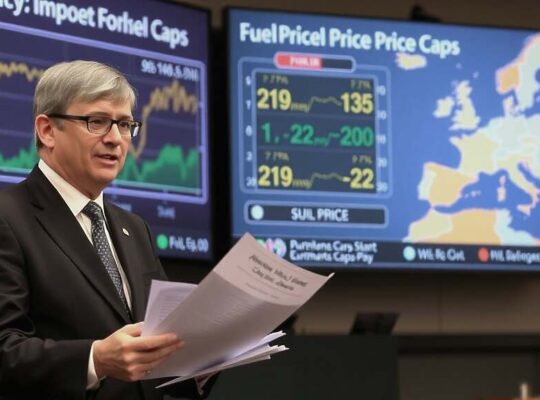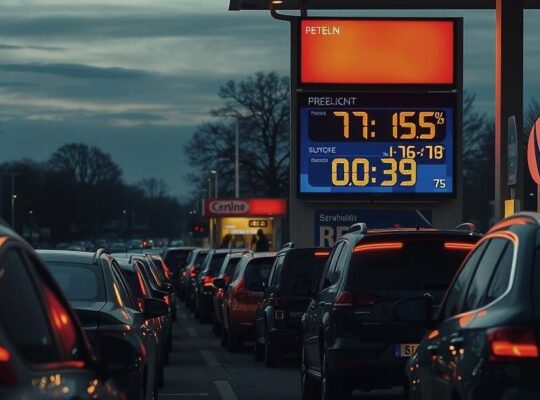The southwestern German state of Baden-Württemberg is intensifying pressure on the federal government to implement a fuel price cap mirroring Austria’s system, sparking a debate over market regulation and consumer protection. According to reports in the “Rheinische Post” the proposal aims to limit fuel price fluctuations to a single daily adjustment, a significant intervention designed to curb what critics are calling increasingly erratic pricing practices.
Currently, German fuel stations reportedly enact an average of 18 price changes per day, a trend identified by the Federal Cartel Office as escalating. This volatility renders the possibility of strategically refueling – taking advantage of seemingly lower prices – increasingly rare, as highlighted in a motion led by Baden-Württemberg. The state argues that the current system allows for an opaque and reactive market dominated by large mineral oil corporations, leaving consumers vulnerable to rapid and often inexplicable price hikes.
The proposal, which would restrict price increases to a single point each day (similar to Austria’s 12:00 PM adjustment), has been met with cautious support from surprising quarters. The German Petrol Station Association has publicly endorsed the initiative, with spokesperson Herbert Rabl stating that it would provide “relief and stabilization for consumers”. Rabl further acknowledged that many petrol station operators themselves are often perplexed by sudden price escalations and are forced to react to consumer frustration stemming from the mineral oil companies’ fluctuating policies.
While the move ostensibly aims to benefit consumers, it carries potential implications for market dynamics and corporate power. The Bundesrat, the upper house of the German parliament representing the states, is expected to approve the proposal, having previously voiced support for similar measures as far back as 2012. However, the initiative is likely to face resistance from powerful industry lobbyists who argue that it would stifle competition and distort the market.
The debate underscores a growing tension between the desire for consumer protection and the complexities of regulating an industry heavily influenced by global commodity markets. Ultimately, Baden-Württemberg’s push will be viewed as a significant challenge to Berlin’s current laissez-faire approach to fuel pricing and a potential prelude to broader calls for greater regulatory oversight of essential consumer goods.












